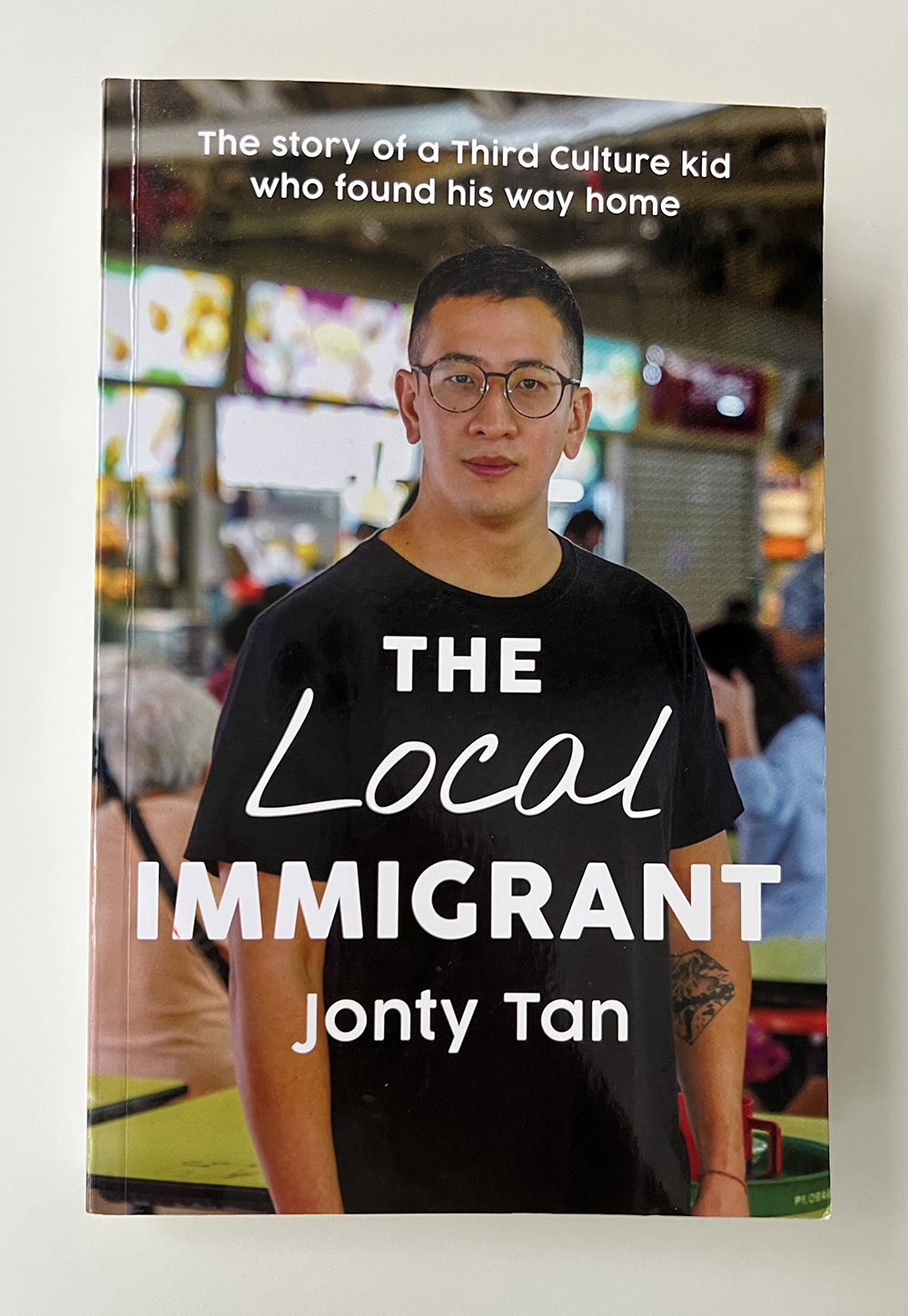Colin Chee reviews this best-selling work by Jonty Tan
Very often, it takes a fresh pair of eyes to pick out the extraordinary from the mundane. Familiarity numbs our senses.
It is what we mean when we say: Why don’t you look at Singapore with the eyes of a tourist who is here for the first time?
Baba Jonty Tan has very successfully achieved this with his debut book, but with a great deal more heart.

It is the combined elements of personal revelations and wonderful storytelling that makes Jonty’s The Local Immigrant such an interesting read. No wonder it was on Kinokuniya’s best seller list for 17 weeks after its June 2022 launch!
In his insightful Foreword for the book, Dr Mark Wenzel, head of one of the international schools in Singapore, wrote, “I felt like I was reading well-written letters from an old friend sharing new discoveries as he explored culture, identity and self.”
Jonty describes his book as the story of a “Third Culture” kid who found his way home. He sees himself as one of those people born in Singapore who grew up in a culture (British) different from that of his parents (Singaporean). His father is a Peranakan, and mother, a Teochew. But they whisked him and his older sister to the United Kingdom from their Ang Mo Kio flat, in pursuit of careers, when he was a toddler. The family became British citizens after working, studying and living in the UK for over 10 years.
Even so, Jonty writes, “I never felt like I fitted in the UK. I loved being there and I had some good friends, but there was always a level of discomfort in my own skin.”
34 years later, in the middle of the COVID pandemic, Jonty found himself “sitting on a bench in Ang Mo Kio, a resident in my country of birth for the first time, taking in the sights, smells, feelings, taste, sounds of the neighbourhood (into which he was born). There was also a deeper sense of home, belonging and fulfilment.”
He had returned “home”. To Singapore, with his supportive English wife, Millie, and two kids.
Jonty’s chapters on What makes a Singaporean and Found Heritage are especially meaningful and poignant as he explores his inner self to uncover who and what he is. He does this thoughtfully while analysing and observing his environment for a more nuanced understanding of Singaporean values, identity, and culture.
One interesting observation: “For us and many of our friends in the UK, to be financially stable was about being comfortable, about owning a house or having nice things. In Singapore there is a different emphasis. Some of it is pride – showing pride in our nation and, also, pride in ourselves. Hard work is valued and there is a culture about being successful.”
And this reflection on heritage: “I love my Peranakan heritage and I would love to see it flourishing. It is hard to maintain some of the customs and traditions and so perhaps we need to redefine what a Peranakan is – not to change, or recreate, but just to redefine, perhaps to emphasize different aspects and from these strengths, develop the modern Peranakan.”
But I like best Jonty’s take on how he will live with his many identities and influences: “It is important for me to embrace my Peranakan-Teochew-Singaporean-Britishness by learning about each aspect and living authentically, understanding that I can call all of these cultures mine.”
He concludes succinctly: “Perhaps this is what makes Singapore so special and what connects us all.”


